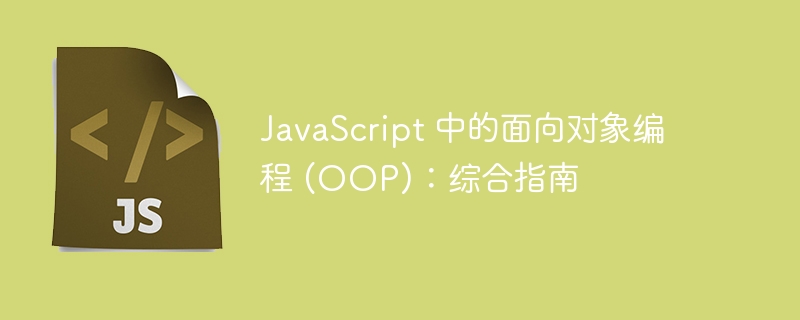
JavaScript面向对象编程(OOP)指南
类与对象
在JavaScript中,对象是属性(键)和方法(值)的集合。类是创建对象的模板。
例子:
1
2
3
4
5
6
7
8
9
10
11
12
13
14
15
// 定义一个类
class Person {
constructor(name, age) {
this.name = name; // 属性
this.age = age;
}
greet() { // 方法
console.log(`你好,我的名字是${this.name},我${this.age}岁了。`);
}
}
// 创建一个对象
const person1 = new Person(Alice, 30);
person1.greet(); // 输出:你好,我的名字是Alice,我30岁了。
封装
封装将数据(属性)及其操作方法捆绑在一个单元(对象)中,限制了对对象内部的直接访问。
例子:
1
2
3
4
5
6
7
8
9
10
11
12
13
14
15
16
17
18
19
20
class BankAccount {
#balance; // 私有属性
constructor(initialBalance) {
this.#balance = initialBalance;
}
deposit(amount) {
this.#balance += amount;
}
getBalance() {
return this.#balance;
}
}
const account = new BankAccount(1000);
account.deposit(500);
console.log(account.getBalance()); // 1500
// console.log(account.#balance); // 错误:无法访问私有属性 #balance
继承
继承允许一个类继承另一个类的属性和方法,实现代码复用。
立即学习“Java免费学习笔记(深入)”;
例子:
1
2
3
4
5
6
7
8
9
10
11
12
13
14
15
16
17
18
class Animal {
constructor(name) {
this.name = name;
}
speak() {
console.log(`${this.name} 发出声音。`);
}
}
class Dog extends Animal {
speak() {
console.log(`${this.name} 汪汪叫。`);
}
}
const dog = new Dog(Buddy);
dog.speak(); // 输出:Buddy 汪汪叫。
多态
多态指同一方法在不同类中具有不同实现。
例子:
1
2
3
4
5
6
7
8
9
10
11
12
13
14
15
16
17
18
19
20
21
22
class Shape {
area() {
return 0;
}
}
class Rectangle extends Shape {
constructor(width, height) {
super();
this.width = width;
this.height = height;
}
area() {
return this.width * this.height;
}
}
const shape = new Shape();
const rectangle = new Rectangle(10, 5);
console.log(shape.area()); // 0
console.log(rectangle.area()); // 50
抽象
抽象隐藏了代码的复杂性,只向用户展示必要的部分。
例子:
1
2
3
4
5
6
7
8
9
10
11
12
13
14
15
class Vehicle {
startEngine() {
console.log(引擎启动);
}
}
class Car extends Vehicle {
drive() {
console.log(驾驶汽车...);
}
}
const car = new Car();
car.startEngine(); // 引擎启动
car.drive(); // 驾驶汽车...
静态方法和属性
静态方法和属性属于类本身,而不是类的实例。
例子:
1
2
3
4
5
6
7
class MathUtils {
static add(a, b) {
return a + b;
}
}
console.log(MathUtils.add(5, 3)); // 8
原型
JavaScript使用原型继承,对象可以从其他对象继承属性和方法。
例子:
1
2
3
4
5
6
7
8
9
10
function Person(name) {
this.name = name;
}
Person.prototype.greet = function() {
console.log(`你好,我的名字是${this.name}`);
};
const person = new Person(Alice);
person.greet(); // 你好,我的名字是Alice
要点
使用class定义类。 使用#定义私有属性。 使用extends实现继承。 利用多态实现不同类的相同方法的不同行为。 使用抽象简化代码。 使用静态方法和属性。 理解原型继承机制。JavaScript的OOP特性让开发者编写更清晰、模块化、可复用的代码。
作者:Abhay Singh Kathayat 全栈开发者,精通前后端技术,擅长使用多种编程语言和框架构建高效、可扩展且用户友好的应用。 联系邮箱:kaashshorts28@gmail.com

